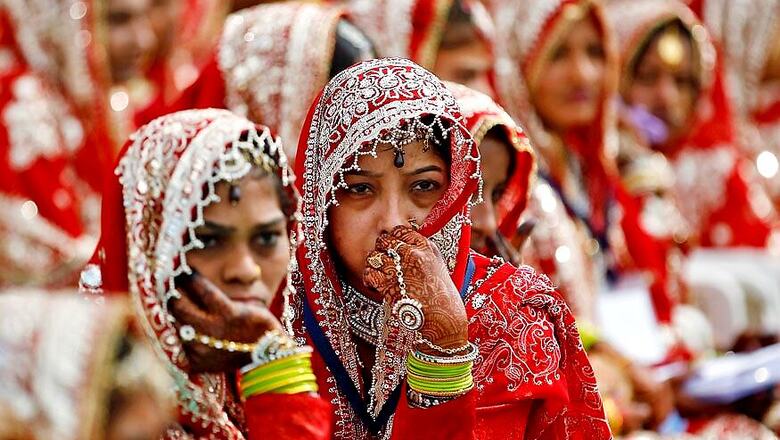
views
New Delhi: Three months after the Supreme Court declared the practice of instant talaq as illegal, the government is now ready with a draft law to penalise husband resorting to the practice included a three-year jail term.
The new law likely to be called The Muslim Women (Protection) Rights on Marriage Act, 2017, and will be tabled during the Winter Session of Parliament.
It makes triple talaq or talaq-e-biddat a non-bailable offence and has provisions for monetary fine along with jail term of three years.
According to draft law, there are provisions for compensation to women as well.
Once a law is in place, the Muslim clergy will have no role in cases of talaq-e-biddat and women can directly approach police for redressal.
As of now, police can only resort to sections under Indian Penal Code for action as no specific act can be invoked against the husband in the absence of punitive provisions in law dealing with triple talaq.
A committee of ministers has been constituted to fine-tune the legislation, the official said. The committee comprises Home Minister Rajnath Singh, External Affairs Minister Sushma Swaraj, Finance Minister Arun Jaitely, Law Minister Ravi Shankar Prasad and Minority Affairs Minister Mukhtar Abbas Naqvi.
The legislation cones after in August this year, the Supreme Court declared talaq-e-biddat as illegal.
On August 22, in a landmark 3-2 verdict, three of five judges on a Constitution Bench — Justices Rohinton F Nariman, Uday U Lalit and Kurian Joseph — called the practice un-Islamic and “arbitrary” and disagreed with the view that triple talaq was an integral part of religious practice.
But the minority ruling by then Chief Justice of India J S Khehar and Justice S Abdul Nazeer, while underlining the primacy of Muslim personal law, said the practice enjoyed constitutional protection and was beyond the scope of judicial scrutiny. They were of the view that Parliament should consider an “appropriate” law to deal with the issue of talaq-e-biddat.















Comments
0 comment